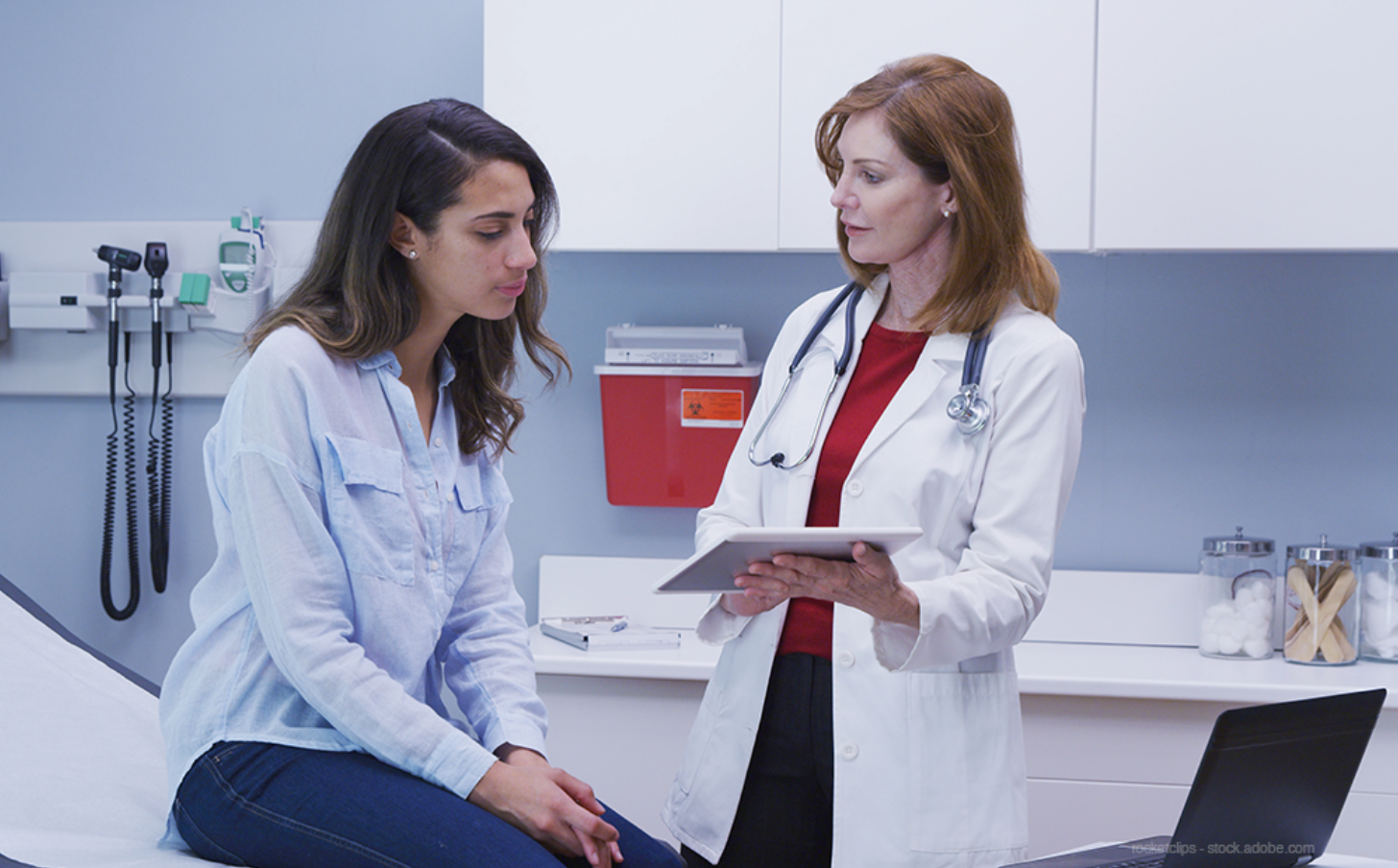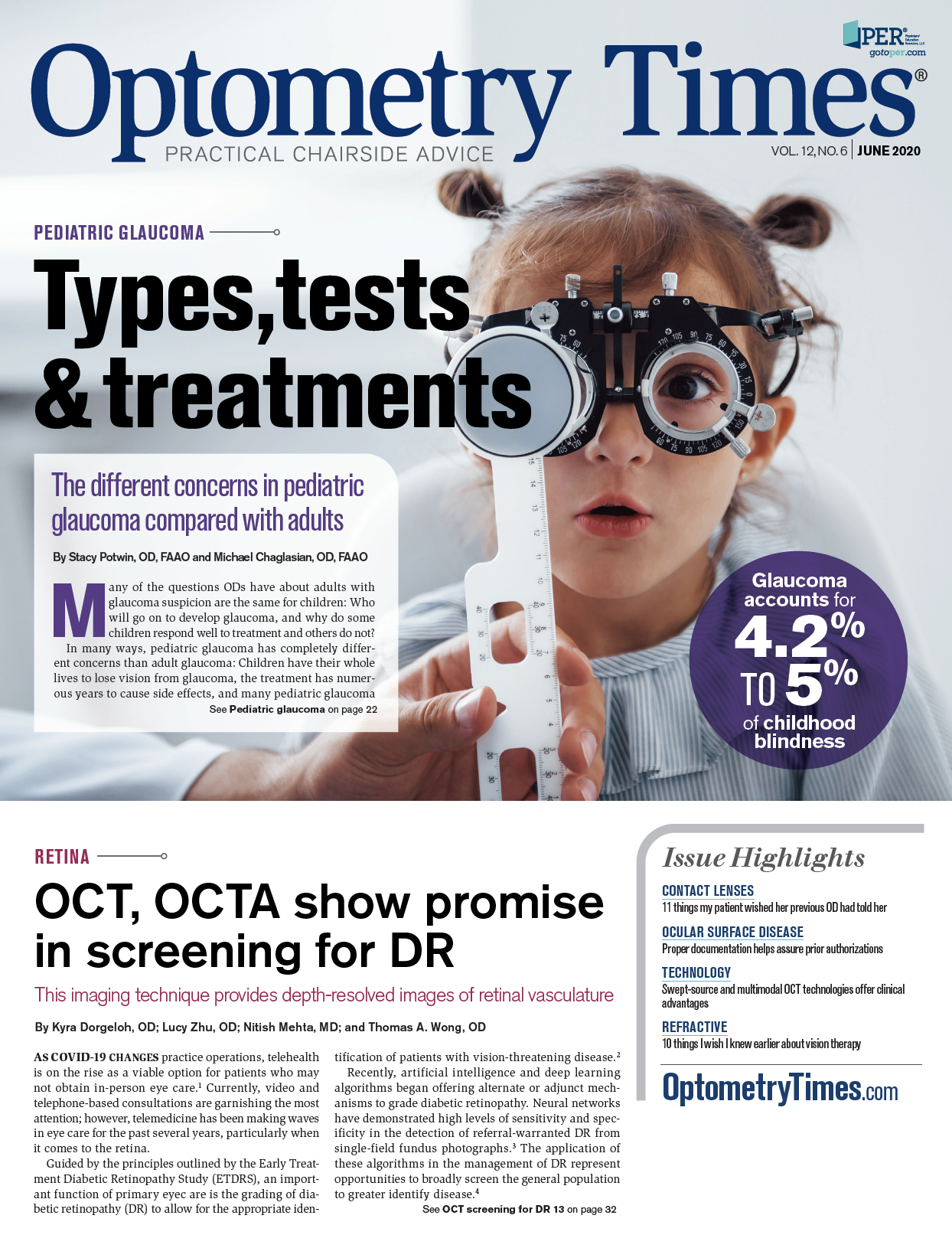11 things my patient wished her previous OD had told her
Communication and education are highly correlated with better patient adherence and when ODs spend time connecting with contact lens wearers one-on-one, the degree to which patients follow contact lens recommendations increases. Establishing rapport, asking questions and sharing knowledge with contact lens patients is a great way to guarantee clinical success.

ODs often talk about the state of the contact lens industry and patient behavior in an attempt to shape healthy habits. Positive clinical outcomes occur when ODs identify noncompliance hurdles before they appear, and steer patients clear of them.
Therefore, it is important that optometrists occasionally spend time connecting with patients to determine where gaps in knowledge lie. Doing so lets us discover our strengths and weaknesses and helps us become better educators.
I recently asked a contact lens wearer to tell me 5 things she wished her eye doctor had told her during previous visits. She replied not with 5—but with 11!
The most significant takeaway from our discussion was this: The topics that interested her most were the topics ODs address the most.
I asked her to rank them in order of importance.
Related: Patients aren’t hearing contact lens care information
EDUCATE ME ON THE IMPORTANCE OF SUNGLASSES FROM INFANCY TO ELDERLY
I love that she added “from infancy to elderly.” Not unlike many of our patients, she cares for two children and elderly parents, and she wants to be a responsible caregiver. Additionally, remember that the mother is the CEO of the house. One piece of advice: Never forget her nurturing and logistical obligations because they make up what and who she represents to your practice.
ODs often incentivize patients to add sunwear to their contact lens purchases. It is a target in many offices, but it still gets overlooked among the hustle and bustle.
I recall another patient conversation in which, despite our yearly persuasion attempts, it was the patient’s buddy’s cool sunglasses that motivated him to finally get a pair of glasses at all, enabling him to reduce his contact lens wear time and dependence.
Perhaps we should keep in mind that though glasses, contact lenses, dilation, pressure checks, and refractions may be fun for us (or not), they are definitely not enjoyed by patients.
So, let’s start talking up the importance of sun protection! It is an area that is seen as both functional and fashionable. Many patients also see sunglasses as something extra they are doing to be good to themselves versus the functional necessity of contact lenses and back-up glasses. Sunglasses are a breath of fresh air.
Related: Engineer a specialty contact lens practice
EDUCATE ME ABOUT THE IMPORTANCE OF NUTRITION IN CARING FOR MY EYES
She also wants to know what foods to incorporate into her diet, how much, how often, and why?
Again, I am so excited that a patient wants to hear this! But I fear that in many offices, patients want to know more than the doctor is equipped to answer when it comes to nutrition.
Nutrition is very trendy among younger generations. It is common for young patients to be into the effects of nutrition on all aspects of the body. Older generations also have an interest in nutrition, mainly for the preservation and recovery of the body.
This puts pressure on ODs to continually learn more and be able to provide information to patients. We have long been accustomed to recommending Age-Related Eye Disease Study (AREDS) supplements and more recently, omega supplements, to specific patients.
But I challenge optometrists to create more holistic value into their care by spending a couple of hours researching foods that are beneficial to patients.
Related: How ODs should handle non-compliance with contact lens replacement
EDUCATE ME ON PREVENTATIVE THINGS I CAN DO TO KEEP MY EYES HEALTHY, LIKE TEA TREE EYEWASH
Disclosure: This came closely following a breakout of lice at her child’s school.
Many times, ODs focus energy educating the “entitled” contact lens wearer who believes there are no consequences for abusing lenses. ODs can become labored by repetitive discussions with such a patient.
If nothing more, perhaps this patient’s comment can serve as a ray of hope and encouragement to not become cynical and to keep learning and digging for more ways to educate patients because they generally do want to be healthy and proactive.
WHEN SHOULD I CALL MY EYE DOCTOR IF I THINK I HAVE SCRATCHED MY EYE OR HAVE REDNESS?
The patient’s pre-existing belief was that she just needed to rinse and rest. But still, she wondered how to judge that (particularly on a weekend when she can’t get in touch with her doctor).
Another great question! It motivates me to create a postcard or rack card to educate contact lens patients on the importance of good care solutions, proper care, what to do before calling, and when to call.
It is also reminder to have a triage card at the front desk to guide staff when a caller needs to be seen emergently, urgently, or at the next available opening. This is especially important when the doctor is not in the office because once the patient calls, the practice is liable for what is said.
Related: Know the hidden links among glaucoma, contact lenses, and the cornea
EDUCATE ME ON THE IMPACT OF LONG-TERM CONTACT LENS WEAR
She wanted to know if her eyes need a break, more than overnight. The fact that this question’s answer is not common knowledge at this point is disappointing, and it compels me to disclose that she is not a patient of mine. (I had to throw that in).
I hope most ODs are encouraging their contact lens wearers to take their lenses out as soon as they get home and have awake hours with their glasses on. I assume her doctor did too, but maybe it needed to be said by the technician as well, and perhaps even the front desk when she checked out and again when she picked her lenses up. This is another great chance to restate important messages in writing.
Related: Keep an eye on link between glaucoma and blood pressure
More than I asked
Without previous discussion I had asked her for 5 things she wished her doctor had told her, and she spit out 11 concerns faster than you can imagine.
Here are the other 6:
– Are there exercises I can do for my eyes?
Is there a health difference between the various lenses I can choose from?
– Is there a difference between name brand and generic contact lens products? Answer honestly, and not because you get free samples.
– What eye drops should I use for moisturizing, allergies, red eyes when I’m wearing contact lenses versus when I’m not? Should I limit how often and for how long I wear them?
– Is there any risk with wearing cosmetic contact lenses?
What?? These are things I want to tell patients about but sometimes encounter resistance when I try. She wants this information? So where is the disconnect?
Perhaps ODs need a better way to deliver information in which the recommendation is not always directly linked to a sale. Also, ODs need a way to communicate with patients that does not automatically put them on the defense, something nonintimidating.
We could start with video education in the waiting room and online, but I think one of the best ways is to invest a few hours into writing key messages and printing them to accompany every contact lens exam. If nothing else, it will give the impression that you care about your patients’ wellbeing and wearing success.
Updated care
This past year, I have made a lot of changes to the physical appearance and functionality of my practice. Physical changes have transformed the tone of the practice, and this in turn affects patient demeanor. When patients walk through my practice’s door, they experience an undeniable sensation that I care.
I provide bound booklets with information to help them, not only through products and treatments that we offer, but with lifestyle changes that will improve stress levels, quality of sleep, exercise, and diet.
I chose a a three-tiered, good-better-best format for these booklets, which allows patients the option to choose a lesser form of over-the-counter (OTC) treatment or go directly for the best care my office can offer.
This helps keep patient expectations in line with the treatments they have chosen and ensures that patients are constantly aware of the advanced options I offer without me “selling” a specific contact lens or treatment.
I am trying to continually improve, listen to patients, and deliver what they need in a way that will encourage them to listen, absorb, and implement.
Perhaps this will have to be a life-long quest, but I would like to think I can get there sooner than that!
More by Dr. Brimer: 5 tips to keep presbyopes in contact lenses

Newsletter
Want more insights like this? Subscribe to Optometry Times and get clinical pearls and practice tips delivered straight to your inbox.